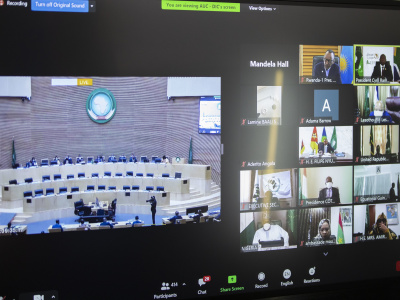
Civil society participation in global governance for development
Sustainable growth and an international development framework - addressing poverty and inequality, building policies and programmes with a human rights based approach - cannot be achieved without people’s engagement. In our experience, development needs active and engaged individuals and communities. Facilitating active citizenship and participation is a crucial step towards the creation of a functional democratic system, which in itself is an essential ingredient to a sustainable development. Civil society can help in this regard, by enabling a broad and democratic debate, and by supporting people’s ability and right to choose and influence their development. This articles lays out the main arguments in favor of civil society engagement at the global level, and goes on to assess the role of civil society in the Busan High Level Forum on aid effectiveness and in the OECD’s new strategy on development.
Facilitating active citizenship and participation is a crucial step towards the creation of a functional democratic systemCivil Society Organizations (CSOs) are a key link in the accountability chain. For instance, in the poor countries where ActionAid is present, we do not act only as a development organization delivering services but also as a support to local communities so that they can mobilize themselves to hold their governments accountable for their choices and policies. We work at the improvement of conditions that can enable civil society organizations’ initiatives. The most recent and still ongoing crisis has a deep impact on the way we look at development and growth. It also confirms that citizens’ participation in holding politicians and governments accountable is relevant at any latitude. Much more must be done in terms of better and more participatory global governance to make sure that all countries and stakeholders are represented on a fair basis. The dynamic between people’s participation and the decision making is crucial: it is an essential element to generate mutual accountability mechanisms, which are uniquely important to make equal partnerships work. The accountability of both international and national institutions is essential, starting at the local level, where it works through the presence of people, groups and staff. One lesson that we have learnt over the years is that international, national and domestic accountability mechanisms are mutually reinforcing.
Busan: Aid effectiveness and policies’ coherence
Reflections on aid effectiveness and development policies’ coherence have clarified that aid produces a marginal impact where political and social climate is not conducive, whether it be in the north or in the south. In this spirit, and in response to the global debate, CSOs have committed to improving their own effectiveness: we have in fact endorsed the Istanbul principles for CSOs’ effectiveness which commits CSOs to such principles as people’s empowerment, gender equality, transparency and accountability. It is crucial that the most recent Busan Partnership for Effective Development Cooperation incorporates the Istanbul Principles and commits all parties to creating and enabling environment where CSOs can act as truly independent actors. Busan was a unique opportunity to influence development cooperation from the point of view of people’s organizations and the Busan principles present such potentials that they can transform policies beyond the domain of ODA and development cooperation. Moreover, they can positively contribute to translate Policy Coherence for Development into a performable path for both donors and partners countries.OECD’s Strategy on Development: the need of a multi-stakeholder approach
The OECD has recently committed to into a more systematic and comprehensive policy dialogue and knowledge sharing and its engagement with multiple stakeholders. We emphasize the importance of different approaches to diverse stakeholders, a key element to foster innovation in development and poverty reduction strategy. Furthermore, we recommend evaluating the unique role that a diverse CSO community can provide: the relation with the civil society can be a precious added value, specifically in terms of outreach. If we really want to build States that are able to implement policies the collaboration with the civil society has to focus more on reaching out to a broader and more various public. As regards the relation between International NGOs and the OECD, we note that a consensus building process is in place but we believe that there is an urgent need for more structures and formal consultations with other stakeholders, beyond watchdogs and International NGOs. A successful Strategy should embody a clear role for global civil society as “an actor of change” and outline how new approaches can be experimented; in this sense, civil society cannot be seen in a limited way – as watchdogs only – but has to be considered as an important and strategic partner. We welcome OECD’s commitment to recognize civil society participation as a prerequisite for long-term poverty reduction and promotion of democracy, and we would like to see a Strategy that proactively supports and acknowledge the role that citizens can play. The OECD DAC for example has hosted the Working Party on Aid Effectiveness that, over time, has evolved into the new entity, which has embraced a wide range of actors coming from different walks of life. This approach – based on multi-stakeholders’ participation in policy setting processes – is an example that can be worth exporting to other agenda domains. Marco De Ponte is Secretary General for ActionAid Italy Photo By Say NO - UNiTE This article was published in GREAT Insights Volume 1, Issue 4 (June 2012).
Loading Conversation


